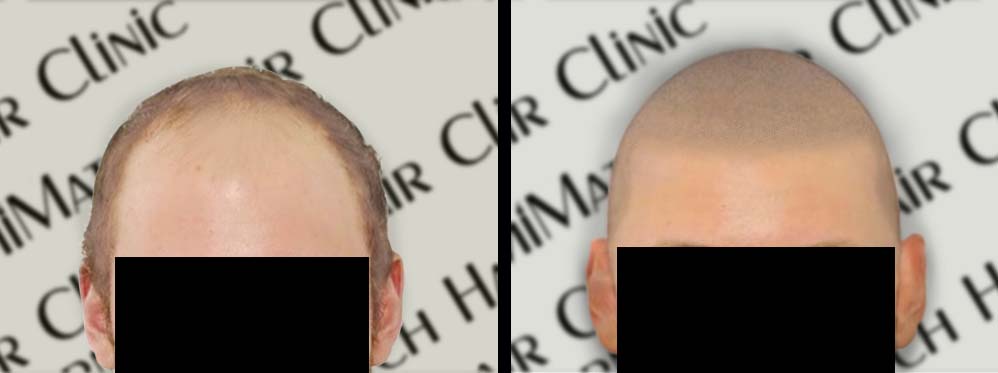Hormones are powerful chemical messengers that play a crucial role in regulating many bodily functions, including hair growth. The relationship between hormones and hair is complex, and fluctuations in hormone levels can lead to changes in hair texture, density, and overall health. By understanding the impact of hormonal changes on hair, you can better manage hair-related issues.
How Hormonal Changes on Hair Work?
To understand the impact of hormones on hair health, let’s first understand hair growth cycle:
Anagen or Growth Phase
Anagen or growth phase is the most active phase of hair growth that lasts several years. During this phase, hair follicles continuously produce new cells that form the hair shaft.
Catagen or Transition Phase
Catagen is a short phase that lasts a few weeks. Hair follicle shrinks and detaches from the dermal papilla, marking the end of active growth.
Telogen or resting Phase
Also referred to as resting phrase, telogen lasts about three months. There is no hair growth, though hair remains in place. Eventually, the old hair falls out, making way for new growth to begin in the anagen phase.
The impact of hormonal changes on hair growth becomes clear from the fact that hormone fluctuations disrupt the hair growth cycle. This results in various types of hair loss or changes in hair quality.
Androgens and Hair Loss
Androgens, including testosterone and its more potent form, dihydrotestosterone (DHT), play a key role in regulating hair growth. For people genetically predisposed to androgenetic alopecia or pattern baldness, elevated DHT levels can lead to the miniaturization of hair follicles.
This process shortens the anagen phase. As a result, hair progressively becomes finer and shorter, eventually ceasing production altogether.
In men, a receding hairline is a common symptom. Some men also notice thinning on the crown. In women, it often results in diffuse thinning. Understanding this process is essential for developing effective treatments for androgen-related hair loss.
Estrogen’s Role in Hair Health
Estrogen has a protective effect on hair follicles, which plays a role in healthy growth. During pregnancy, higher levels of estrogen extend the anagen phase. That’s the reason pregnant women enjoy thicker, fuller hair. Many women notice an improvement in hair volume during pregnancy due to this hormonal surge.
However, after childbirth, estrogen levels drop significantly, often leading to a condition known as telogen effluvium. During this time, there is significant shedding of hair as a large number of follicles enter the telogen phase.
While this shedding is usually temporary and resolves within several months, it can be distressing for new mothers.
Other Hormonal Influences on Hair Health
In addition to androgens and estrogen, several other hormones influence hair health:
Progesterone
This hormone helps balance androgen activity by inhibiting the conversion of testosterone into DHT. Maintaining a healthy progesterone balance can support optimal hair growth.
Cortisol
The stress hormone, cortisol can negatively affect hair health when produced in excess due to chronic stress. Elevated cortisol levels can disrupt the hair growth cycle, leading to increased shedding.
Thyroid Hormones
Both hyperthyroidism and hypothyroidism can significantly impact hair health. Symptoms of thyroid imbalances may include thinning hair or complete hair loss.
Polycystic ovary syndrome (PCOS)
Conditions like PCOS can also contribute to hormonal imbalances that lead to higher androgen levels in women. As a result, you might experience excessive body hair growth but hair thinning on the scalp.
Scalp Micropigmentation: A Solution for Hair Loss
For individuals experiencing hair loss or thinning due to hormonal changes, scalp micropigmentation might be a better choice. SMP is a cosmetic scalp tattooing technique in which a scalp artist deposits pigment into the scalp. They try to replicate the appearance of natural follicles. It can create the illusion of fuller hair, camouflage scars, and restore the appearance of a thicker hairline.
Understanding the effects of hormonal fluctuations on hair health is essential for anyone experiencing changes in hair texture, density, or growth. Whether due to natural life stages or underlying health conditions, these hormonal shifts can lead to hair thinning or loss. However, treatments like scalp micropigmentation provide a non-invasive, effective way to address these issues, restoring both the appearance of fuller hair and self-confidence.
It begins with finding the right Arizona SMP practitioner for your scalp job. Remember, you cannot trust an inexperienced tattoo artist for scalp micropigmentation. Trust SMP professionals at DermiMatch Clinic, who know their profession well and have helped bring smiles to thousands of faces.

